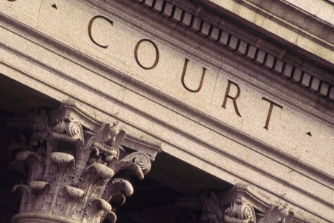Court Process
In most cases, people are compelled to attend court for a criminal case by one of three documents.
If someone is arrested and released by the police, they will usually be issued a document called an Undertaking to a Peace Officer. The Undertaking will include the first court date and may also include a date to attend the police station to collect fingerprints and a photograph.
The Undertaking will also typically include conditions of release. Common conditions include not contacting or communicating with the complainant, reporting to a bail supervisor, and not possessing weapons.
The conditions listed on an Undertaking do not end on the first court date. The conditions remain in place until the case is concluded or a judge agrees to modify them.
Signing an Undertaking to be released by the police is not an admission of guilt.
The complainant in a criminal case does not have control over the conditions an accused person is subject to. Where, for example, there is a no-contact condition in place, even if the complaint initiates contact with an accused person the accused person can be arrested and charged with breaching the condition if they reply.
If counsel is retained and a document called a Counsel Designation Form is prepared and signed, it is possible for a lawyer to appear in court for a first appearance on behalf of a client to avoid needing to attend in person. In most cases, it’s also possible for a lawyer to deal with a first appearance date electronically and in advance to save time and make the process more efficient.
Where there is also a date for fingerprinting and photographs, an accused person would still need to attend for this.
If the police or Crown Counsel are not seeking any conditions of release, it is also possible to be notified of an initial court appearance for a criminal case using a document called a Summons. A Summons can be either mailed or delivered in person.
If an accused person doesn’t attend court pursuant to a Summons, they could then be arrested by the police and released with an Undertaking.
A third way the court process can commence in a criminal case is if the police arrest someone and Crown Counsel is seeking to have the person remain in jail prior to their trial. In this circumstance, there would be a judicial interim release hearing, sometimes called a bail hearing.
As a judicial interim release hearing, a judge or judicial justice would determine if it was necessary to have an accused person remain in jail before their trial. Because people in Canada are presumed to be innocent and have a constitutional right not to be denied reasonable bail without just cause, most accused people are not held in jail before trial.
In Canada, judicial interim release is not typically a matter of depositing money. When an accused person is released, it’s typically a matter of imposing conditions, which may include reporting by a bail supervisor.
When an accused person is released by a judge or judicial justice they will be given a document called a Release Order listing the conditions they are subject to as well as their next court date.
